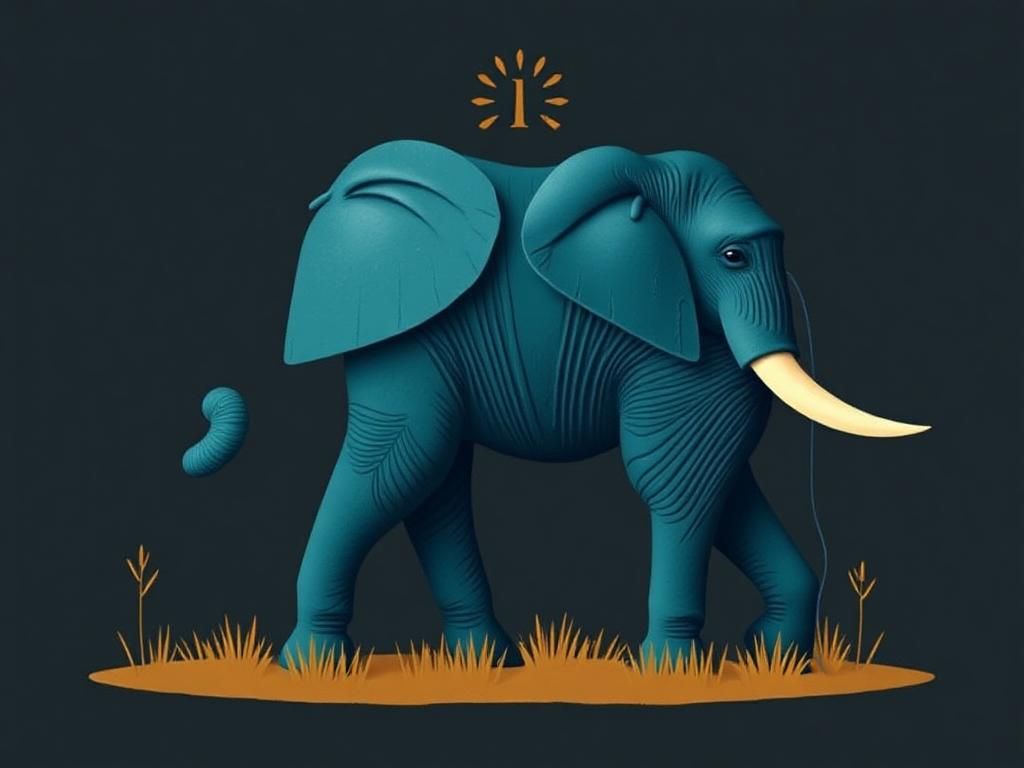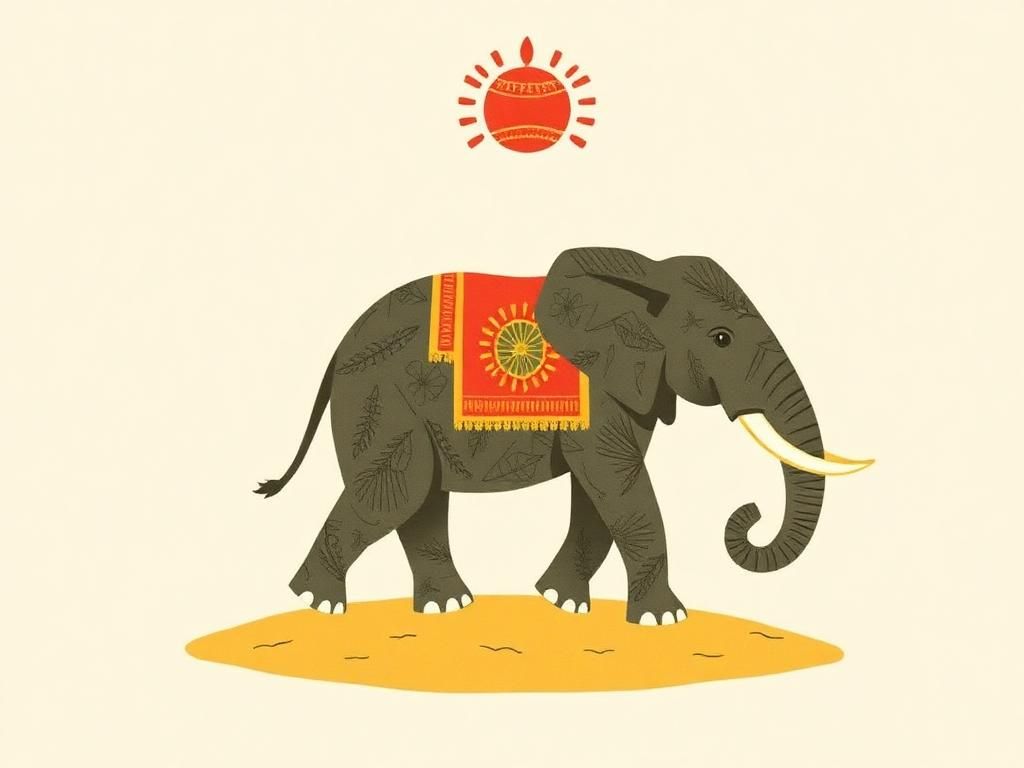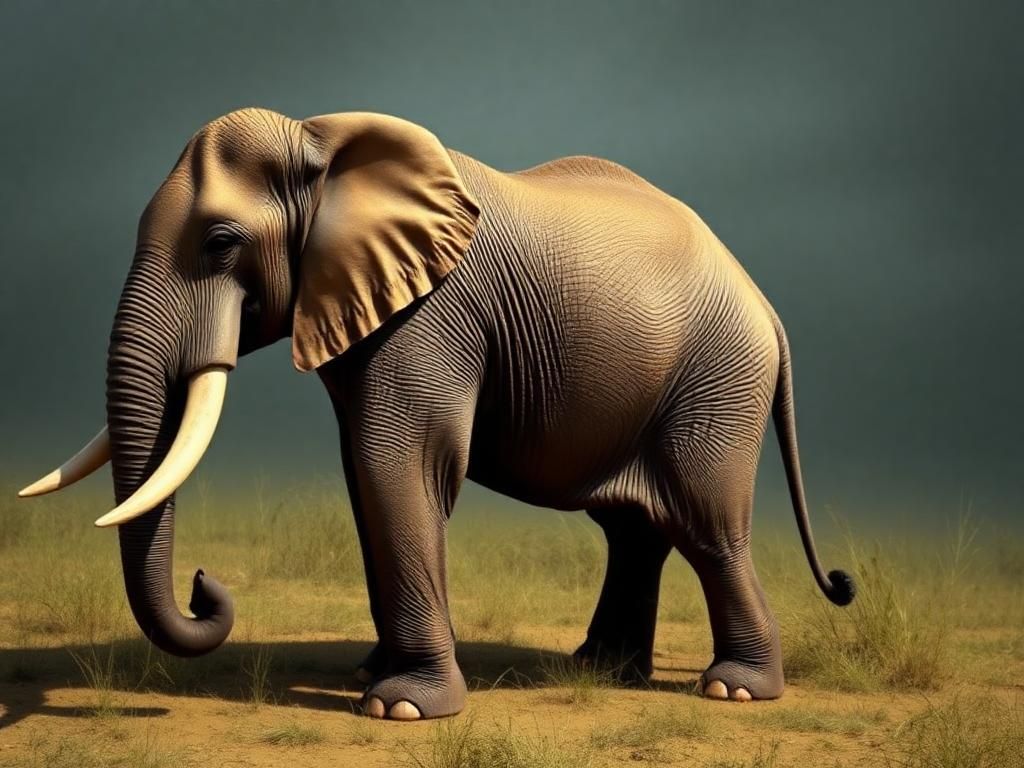Elephants, magnificent creatures often revered in various cultures around the world, symbolize a myriad of profound qualities that extend beyond their physical presence. As we explore the question “what does an elephant symbolise,” we discover their rich significance across different societies, their representations of strength, loyalty, and wisdom, as well as their impact on modern perspectives and conservation efforts. Symbolism plays a crucial role in understanding cultural beliefs, and elephants stand as a powerful representation of these ideas.
Cultural Significance of Elephants
Elephants in Asian Cultures
In many Asian cultures, elephants hold a revered place, intertwined with spirituality and tradition. In Hinduism, the elephant is predominantly represented by Ganesha, the elephant-headed god who embodies wisdom and prosperity. Ganesha is often worshiped for good fortune and is considered a symbol of fertility, marking rituals that reflect hope and new beginnings. The significance of elephants in Hindu culture extends into the iconography surrounding them, where they symbolize strength in overcoming obstacles.
Similarly, in Buddhism, elephants exemplify strength and loyalty. The elephant is often part of Buddhist teachings, representing peace, enlightenment, and the journey towards spiritual awakening. The white elephant, in particular, holds a sacred status, signifying purity and spiritual wisdom.
Elephants in African Cultures
In Africa, elephants are deeply embedded in tribal and cultural beliefs. They are viewed as powerful symbols of pride and representation in rituals and ceremonies. Among various tribes, elephants are celebrated during rites of passage and community gatherings, acknowledging their strength and majesty. Their presence often signifies the Circle of Life, connecting communities to nature and the environment around them.
Moreover, elephants play an essential role in storytelling and oral traditions across African cultures, representing themes of unity and strength amidst adversities. They are often seen as protectors and providers, showcasing the deep respect and spiritual connection that various tribes hold towards these giants of the animal kingdom.
Elephants in Western Cultures
While elephants may not dominate the symbolism in Western cultures as they do in Eastern ones, they nonetheless convey deep meanings. Elephants typically symbolize memory and intelligence, attributes that are frequently illustrated in literature and art. Their remarkable ability to remember and navigate complex social structures makes them a metaphor for wisdom in various narratives.
In activism and conservation movements, elephants serve as powerful symbols of courage and strength. Campaigns aiming to raise awareness about wildlife conservation often adopt elephants as central figures, urging society to protect not just the species, but the natural habitat they embody. Through art and literature, elephants emerge as motifs representing resilience in the face of challenges.
Symbolic Meanings of Elephants
Strength and Power
One of the most apparent symbolic meanings behind elephants is their incredible strength and power. As the largest land animals, their physical prowess is a testament to their resilience and dominance in the wild. When exploring the question what does an elephant symbolise, it becomes evident that strength transcends physical attributes, extending into leadership qualities. In many cultures, elephants exemplify the ideal leader: strong, protective, and nurturing.
Family and Loyalty

Elephants are known for their matriarchal social structure, where the oldest female leads the herd. This familial bond is paramount in elephant society, demonstrating the importance of cooperation and loyalty among members. These strong familial ties convey the significance of relationships, resonating with universal values of love, trust, and support.
Loyalty among elephants, akin to bonds of friendship, is reflected in their behaviors—showing compassion, enduring sorrow upon loss, and caring for one another. Observing these traits allows societies to connect their values with the profound familial bonds showcased.
Wisdom and Intelligence
In exploring the depth of the question what does an elephant symbolise, wisdom emerges as a vital trait. Elephants possess a long lifespan that contributes to a wealth of knowledge and experience in their social interactions. Their remarkable intelligence is highlighted in their ability to solve problems and create social relationships. Observing how elephants interact provides insights into how intelligence is appreciated across cultures.
In various cultural narratives, elephants are often portrayed as wise figures, capable of steering communities toward enlightenment and understanding. Their ability to communicate, empathize, and innovate represents the pinnacle of intelligence that transcends species.
Tranquility and Peace
Amidst their powerful presence, elephants are often seen as symbols of tranquility and peace. With their calm demeanor and gentle nature, elephants reflect harmony in the world around them. This aspect of their symbolism calls for a deeper understanding of coexistence with nature and urges societies to prioritize balance with the environment.
Numerous cultural narratives emphasize the role of elephants as guardians of peace, mediators in conflicts representing stability and calm. Thus, they serve as poignant reminders of the importance of nurturing peace in our lives and interactions.
Modern Interpretations and Use of Elephants
Elephants as Conservation Symbols
In contemporary times, elephants symbolize the critical issues surrounding wildlife conservation and environmental sustainability. The phrase what does an elephant symbolise resonates strongly within this context, emphasizing their role in advocacy for endangered species. Numerous organizations harness the symbolism of elephants to bring attention to environmental degradation and wildlife protection.
Elephants are at the forefront of campaigns aimed at raising awareness about poaching, habitat loss, and climate change. By using the image of elephants in their logos and promotional materials, organizations help underscore the urgency of protecting these magnificent creatures and their habitats.
Elephants in Art and Literature
The representation of elephants in contemporary art highlights the evolving symbolism associated with these creatures. Artists often explore themes of memory, strength, and cultural identity, using elephants as a metaphor to convey complex emotions and narratives. Many prominent artists integrate elephants into their works, emphasizing the enduring legacy of these symbols.

In modern literature, elephants serve as characters that embody various themes, from adventure and friendship to wisdom and justice. Their symbolic presence prompts discussions around larger societal issues, making them influential figures in storytelling.
Conclusion
In sum, the indication of what does an elephant symbolise extends across a rich tapestry of meanings, ranging from strength and wisdom to peace and familial bonds. The multifaceted nature of their symbolism underscores their significance in both historical and contemporary contexts. As society continues to evolve, so does the importance of elephants in inspiring reflection on our values and relationships. Whether in art, literature, or conservation, the symbolic presence of elephants endures, inviting individuals to contemplate their own connections and beliefs.
Additional Resources
| Cultural Context | Symbolism | Key Attributes |
|---|---|---|
| Asian Cultures | Wisdom, Prosperity, Peace | Ganesha, Rituals |
| African Cultures | Power, Pride, Nature | Rituals, Circle of Life |
| Western Cultures | Memory, Intelligence, Courage | Activism, Art |
FAQs
1. What is the spiritual significance of elephants in Hinduism?
Elephants symbolize wisdom and prosperity, primarily through the deity Ganesha, who is worshipped for good fortune.
2. How do elephants represent family values?
Elephants display strong familial bonds, led by a matriarch, highlighting the importance of loyalty and cooperation within families.
3. What role do elephants play in environmental conservation?
Elephants serve as key symbols in conservation campaigns, raising awareness about wildlife protection and habitat preservation.
4. Why are elephants considered symbols of peace?
Their calm demeanor and gentle nature symbolize harmony, urging societies to strive for balance with nature.
5. How do elephants demonstrate intelligence?
Elephants exhibit impressive problem-solving skills, social interactions, and a remarkable memory which contributes to their depiction as wise figures.
6. What do elephants symbolize in modern art and literature?
In contemporary art and literature, elephants embody themes of strength, resilience, and often evoke reflections on societal issues.
7. Are there any specific species of elephants that hold different symbolic meanings?
While all elephants share similar symbolic meanings, the African and Asian elephants may resonate differently within various cultures based on their appearances and traits.
8. How can one learn more about elephant symbolism?
Resources such as books, documentaries, and websites dedicated to wildlife conservation offer extensive information on the symbolism and significance of elephants.
9. What is the impact of poaching on elephant symbolism?
Poaching threatens the survival of elephants, shifting their symbolism from strength and hope to a pressing conservation crisis, urging greater advocacy.
10. How can elephants symbolize community values?
Through their social structures, elephants illustrate the importance of community support, cooperation, and resilience, reflecting universal values that can inspire human relationships.
